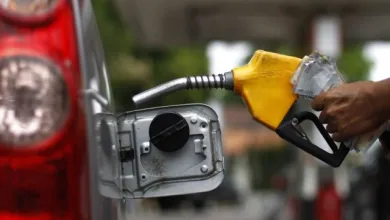On June 3, 2025, Ghana’s Parliament approved the Energy Sector Levy (Amendment) Bill, introducing a GH¢1 increase in the levy on petroleum products. The government argues that this measure is necessary to reduce the country’s massive energy sector debt, which currently stands at $3.1 billion according to GhanaWeb. Officials estimate that the levy will generate an additional GH¢5.7 billion in revenue, helping to clear arrears and ensure a more stable power supply.
In a report cited by Daily Graphic, Finance Minister, Dr. Cassiel Ato Forson assured citizens that the increase will not affect the ex-pump price of fuel. He also revealed that an extra $1.2 billion is required for fuel procurement to maintain thermal power generation throughout 2025. Despite these assurances, the bill faced strong resistance from the Minority Caucus, who staged a walkout during the approval process, arguing that the Majority lacked the numbers to take a binding decision.
Why was the levy introduced?
Ghana has struggled with energy sector debts for years, leading to inconsistent power supply and financial strain on power producers. The government believes that without urgent intervention, electricity challenges could worsen, affecting homes and businesses nationwide. By increasing the levy, officials aim to raise sufficient funds to settle debts and secure a reliable energy source for the future.
The Minority’s Opposition
Despite government optimism, the Minority Caucus in Parliament sees the levy as inappropriate. Opposition figures argue that Ghanaian households are already burdened with high living costs and should not be responsible for clearing government debt. They also expressed concerns over transparency and whether the funds would be used effectively.
Impact on drivers and commuters
Public transport operators recently reduced fares by 15%, offering relief to commuters battling economic difficulties. However, the GH¢1 fuel levy introduces a fresh concern for drivers. Although the government assures that the ex-pump price of fuel will not increase, transport unions fear that the levy could indirectly lead to rising operational costs.
For commercial drivers, the additional cost per liter may accumulate significantly over time. Some transport operators worry that they may be forced to reconsider fare reductions if fuel expenses climb unexpectedly.
A taxi driver told Let’s Ride n Drive in a conversation wondered how they, as an association, would cope despite just reducing the price of transportation.
“We just reduced fares, but if fuel costs rise again, how do we cope? We might have to adjust fares sooner than expected.”
Commuters are also watching closely. The recent fare reduction was seen as a small win, but if transport prices increase again due to fuel costs, it could erase those gains. Many Ghanaians rely on public transport for their daily commute, and even slight increases in fares can affect household budgets.
Beyond transport, other industries that rely on fuel, such as food delivery services, logistics, and agriculture, might feel the impact. Higher fuel costs could lead to increased prices for goods and services, influencing inflation and cost-of-living concerns.
Public reaction and social media buzz
As expected, the levy has sparked heated discussions across Ghana, with many taking to social media to share their opinions. Some citizens argue that paying GH¢1 per liter for the Energy Sector Levy (ESLA) isn’t a problem when the economy is stable, prices are low, and trust in government is high. Others, however, see it as an unfair burden, especially for struggling households.
Comparisons between past and present fuel prices add another layer to the debate. “Under the NPP, fuel was sold at GH¢16 per liter. It now sells at GH¢11, so paying GH¢1 for ESLA is still reasonable,” one social media user remarked. Another highlighted the proportional impact, stating, “GH¢1 on GH¢100 is bad, but GH¢1 on GH¢12 is good.”
There are also symbolic gestures of support for the government’s policy. One citizen, in an interesting show of endorsement, pledged “100 bags of cement” in support of the government’s decision, an example of how people use bold statements to emphasize their stance on national issues.
However, skepticism persists. The Minority remains vocal in its opposition, questioning the necessity of the levy and whether it truly benefits citizens or merely covers poor financial management.
What’s next?
With the levy now in effect, Ghanaians will closely monitor its impact on the energy sector. Will it truly lead to debt repayment and better power supply, or will it add to Ghana’s growing economic challenges? Meanwhile, social media continues to be a battleground for debate.




